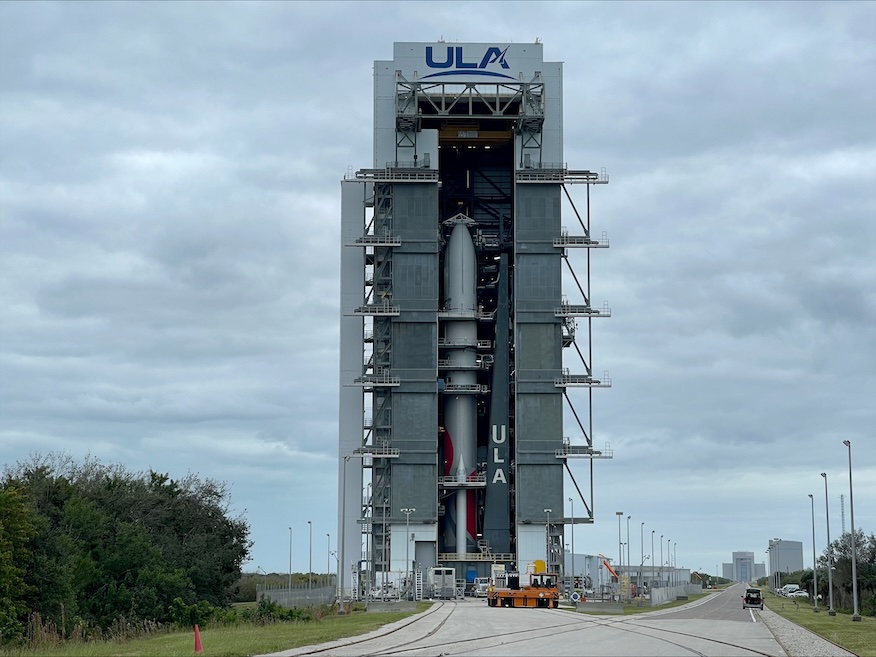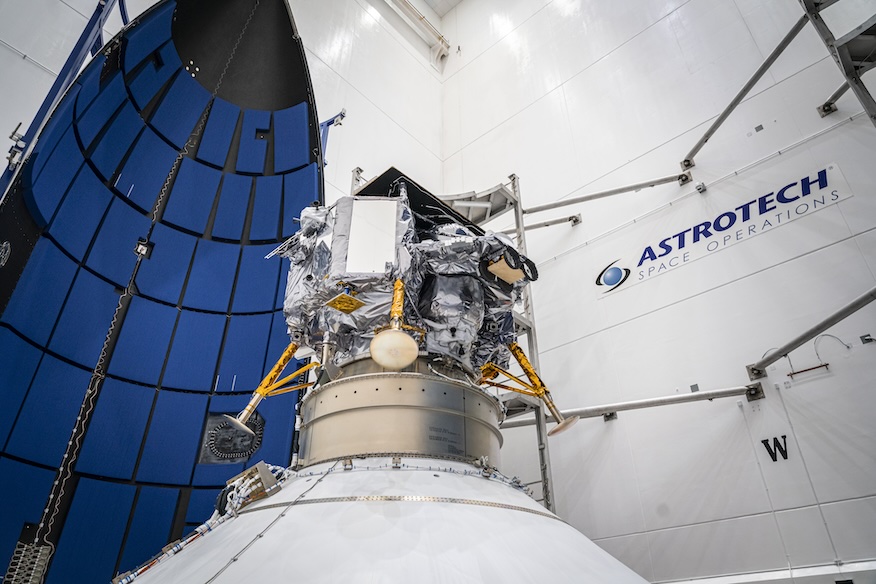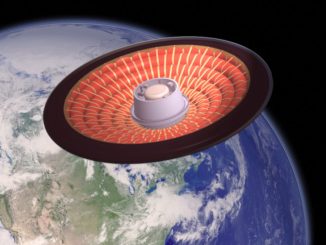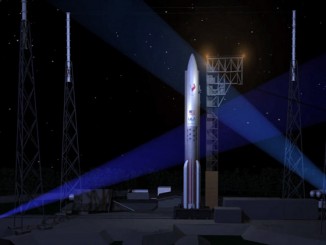
United Launch Alliance achieved a critical milestone towards the debut of its next launch vehicle. On Wednesday, the company integrated the payload fairing on top of its Vulcan rocket, marking the first time it has put together the full stack.
The operation comes less than three weeks ahead of the target launch date for the rocket, Monday, Jan. 8, 2024. Liftoff for the Certification-1 (Cert-1) mission is set for 2:18 a.m. EST (0718 UTC) from Space Launch Complex-41 (SLC-41) at Cape Canaveral Space Force Station.
Earlier this month, ULA was hoping to launch the rocket during a December window that ran from the 24th through the 26th. However, an incomplete wet dress rehearsal tanking test caused them to redo the test and therefore, pivot to the January launch window, which spans from Jan. 8-11.
Because of launch delays over at Launch Complex 39A at NASA’s Kennedy Space Center, the launch of Intuitive Machines’ Nova-C lander was pushed off into the February window. That means that Vulcan and its payload, Astrobotic’s Peregrine lunar lander, is now set to be the first spacecraft to launch as part of NASA’s Commercial Lunar Payload Services (CLPS) program.
The Cert-1 mission will be a Vulcan VC2S variant vehicle. The “2” represents the two GEM 63XL solid rocket boosters onboard and the “S” represents a short payload fairing length. The short version of the fairings are 51 feet (15.5 meters) in height and 17.7 feet (5.4 meters) in diameter.
As a fully integrated vehicle, this Vulcan, sporting a short fairing, stands at 202 feet (61.6 meters) tall.
The primary mission is to send the Peregrine lander into a highly elliptical orbit on its way to the Moon. Secondarily, a memorial payload dubbed “Enterprise” affixed to the Centaur 5 upper stage, will continue on into a hyperbolic orbit around the Sun.
The mission being launched on behalf of Celestis Memorial Spaceflight contains 265 capsules with the cremated remains and DNA samples of many notable figures. The name “Enterprise” comes from the fact that “Star Trek” creator Gene Roddenberry and his wife, Mabel Barrett Roddenberry, are among those onboard. Key actors from the show, Nichelle Nichols and James Doohan, are also being flown along with DNA samples from three former U.S. presidents.
CLPS takes flight
The Cert-1 mission notably marks the debut mission for Astrobotic as well. Peregrine Mission-1 (PM-1) is designed to demonstrate a suite of five NASA payloads under the CLPS program. Astrobotic was one of nine companies selected in 2018 to carry out these commercial missions to the Moon.
Regardless of when during the January window Vulcan launches, a spokesperson at Astrobotic said the lander will touch down on the Moon’s surface on Feb. 23. The anticipated time of the landing has not been publicly released.

The Peregrine lander is set to touch down at Sinus Viscositatis, which translates to “Bay of Stickiness.” It’s located at 35.25 degrees North and 40.99 degrees West on the Moon. The area is marked by a hardened lava flow, which has a granite-like composition and is an area that researches on Earth are eager to study.
“It’s incredibly thrilling. We’ve been talking about this mission for 16 years as an organization, our first mission to the Moon and now, it’s finally here,” said Dan Hendrickson, the Vice President of Business Development at Astrobotic. “The team is exhilarated, anxious to get off the launch pad and ready to fly. So really, it’s a dream come true now that we’re here. This is actually the moment.”
Hendrickson spoke with Spaceflight Now on the sidelines of the von Braun Space Exploration Symposium in late October. The Peregrine lander is hosting 20 payloads in total, including a small rover designed and built by students and faculty at Carnegie Mellon in Pittsburgh, Pennsylvania. The city is also where Astrobotic is based.
“We’re really excited to have the whole world on board. We have seven nations that are represented across the 16 different customers,” Hendrickson said. “So not only is the U.S. returning to the Moon for the first time since Apollo 17, but we’re carrying a variety of international partners, giving them their opportunity to touch down on the surface, operate. And that’s no small thing.”
Peregrine’s landing operation will be live-streamed with additional pictures to follow during its up to 10-day operation on the Moon.



